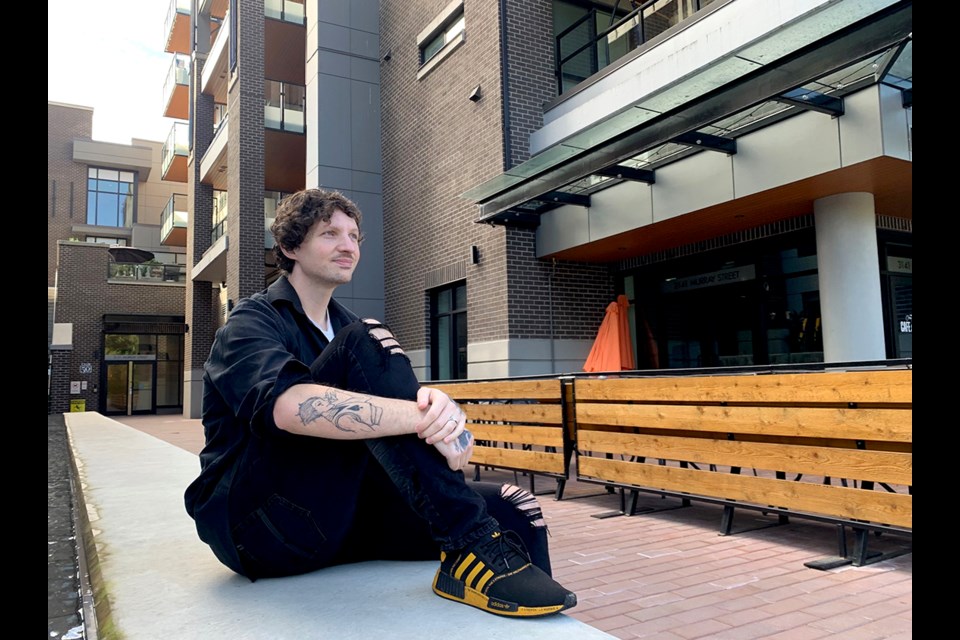Christian Fracchia says he “moved around a lot” as he established his career as a software developer in the animation industry.
But four years ago, his nomadic existence from living with his parents to renting apartments in Coquitlam, Port Coquitlam and Langley, had an end in sight when he applied to be part of a unique rent-to-own program at a new condo to be constructed on Port Moody’s Murray Street.
The scheme, introduced by developer Kush Panatch to make 30 units at his 50 Electronic Avenue project more affordable, allowed qualified first-time purchasers to rent their new homes at below-market rates for two years with all the money going towards the initial purchase price.
The idea proved wildly successful.
More than 700 potential buyers applied to participate in the rent-to-own program. And while pre-qualifying interviews whittled that number to about 200, a lottery still had to be held to determine the 30 eventual purchasers.
Fracchia’s was the second name pulled from the hat.
The 30-year-old said the sudden realization that he would soon own a brand new one-bedroom condo in his hometown was “really surreal.” It also kicked in an “aggressive” savings program to ensure he could come up with the balance of his downpayment when the two-year rental period ended.
Fracchia moved back in with his parents. He cut down on incidental expenses like eating take-out or going to restaurants. He also got married.
Now with a two-income household and a better-paying position at work, Fracchia said coming up with the rest of the money he needed to take full possession of his new home wasn’t a hardship. But, he added, without the assistance of being able to lock in his purchase price and then apply his shelter expenses towards his downpayment, he’d likely still be chasing the home ownership dream.
“It’s not a problem you can save your way out of,” Fracchia said of the affordability crisis that continues to shut so many young people and families from owning a home.
That was exactly the impetus driving Panatch, his son, Aman, and daughter Eshleen, as they brainstormed ideas that would make their family company’s first foray into Port Moody stand apart.
Kush Patach said he kept coming back to a conversation he’d had with a Port Moody firefighter who said he couldn’t afford to own his own home in the community.
“He said trying to save for a house is like trying to catch a moving train. He wished he could hit ‘pause.’”
Rent-to-own could be that pause, said Panatch.
While Port Moody councillors were delighted by the idea as they considered bylaw amendments required for the 358-unit project to proceed, and the development industry heralded rent-to-own as an innovative approach to improve housing affordability, Panatch said banks that provide financing to developers didn’t quite know what to make of it.
“They’d never seen it before. When you’re on the leading edge, you don’t get the benefit of the doubt.”
Panatch said the rent-to-own program didn’t fit in with banks’ traditional way of qualifying mortgage holders because the initial downpayment is so low. He said they worried it would be too easy for them to back out or not follow through.
But, countered Panatch, rent-to-own purchasers are likely more committed to fulfill their purchase contract because they’ve already spent two years investing into their community.
“This is a game-changer in their life,” he said of rent-to-own purchasers. “They’re committed.”
Panatch said various levels of government also have a role to play ensuring programs like rent-to-own help address the housing affordability crisis, from streamlining approvals at the municipal level, to the federal government being more accommodating applying GST charges. He said as such pieces fall into place, rent-to-own will become a more viable option for developers to offer their customers, especially for larger projects with more than 100 homes.
“It will become the norm to the point where every project will be able to offer it,” Panatch said.




